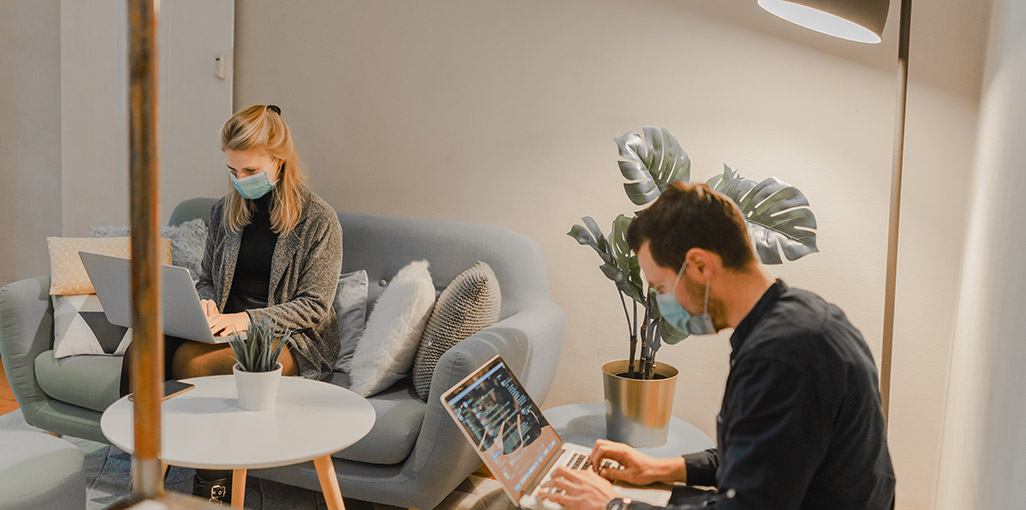The pandemic has uncovered a deep desire in us to have the best of both worlds when it comes to work. While people have enjoyed the benefits of working from home—more time with family and hobbies, and no more daily commutes—they also want to stay connected with their colleagues and collaborate in the office when needed. It is inevitable: people want to work differently. McKinsey’s independent research supports this, predicting in their “Future of Work after COVID-19” report that nearly a third of workforces in “advanced economies” across eight countries would continue a hybrid work model, where employees work 2-3 days a week in the office, in the future.
As a tech & innovation consultancy, this is top of mind for us. Our own company has experienced the highs and lows of remote work, and we are eager to understand what hybrid work could look like in the future. We explored what is needed across policy and culture, the built environment, and technological demands, to make hybrid work for people and organizations. Embedded across each theme are underlying questions around human psychology and behavioral change. What is going to make people comfortable and excited about hybrid work?
In our first installment we look at work policies.
Work Policies Need to Change
Imagine if employees had the flexibility to pick days to commute into the office or to spread out the workday to accommodate any family conflicts. Sounds incredible, right? Although there is no one-size-fits-all solution, companies need to modify their work policies to meet the needs of all their employees. This is especially critical for working women and people with disabilities, as COVID-19 has disproportionately impacted those groups over the last year.
To start, we recommend setting realistic expectations and being open to making adjustments through continuous evaluation and employee engagement.
- Determine the number of days in the office by deciding which scenarios require in-person attendance, and what constitutes a work day. Explore a flexible day policy, with overlapping work day hours. This flexibility not only accommodates the new realities of people’s varying schedules, but would be effective at managing crowd volume in larger buildings.
- Think remote-first to effectively account for employees that will not be in the same physical space as you. It’s important to avoid the us vs. them mentality and strive for trust and equality regardless of where people choose to work.
- Focus on building social capital. Many people felt this had been lost across teams and company culture over the last year. This is an important, yet invisible loss. Social capital builds trust, which is essential for collaboration and innovation work across teams. It is critical for companies moving forward to figure out ways to deepen social connections amongst employees. Although virtual events and socials have become the new norm, live meetings in person still have significant value. We want to emphasize the importance of meeting face-to-face when appropriate.
Returning to work won’t be so simple and easy anymore. Hybrid work policies will need to be fluid and flexible to adapt to employees’ ever-changing needs as we collectively figure out how to work in the future. Companies that invest in flexible policies and creative ways to build social capital in a post-COVID work environment will be at a competitive edge over companies that do not.
In our next piece we will discuss how the built environment needs to evolve to accommodate hybrid work models.
Special thanks to Steve Benoit, Gail Black Smith, and Janus Cole for their help with researching and editing this article.
Photo credit: Utopix




